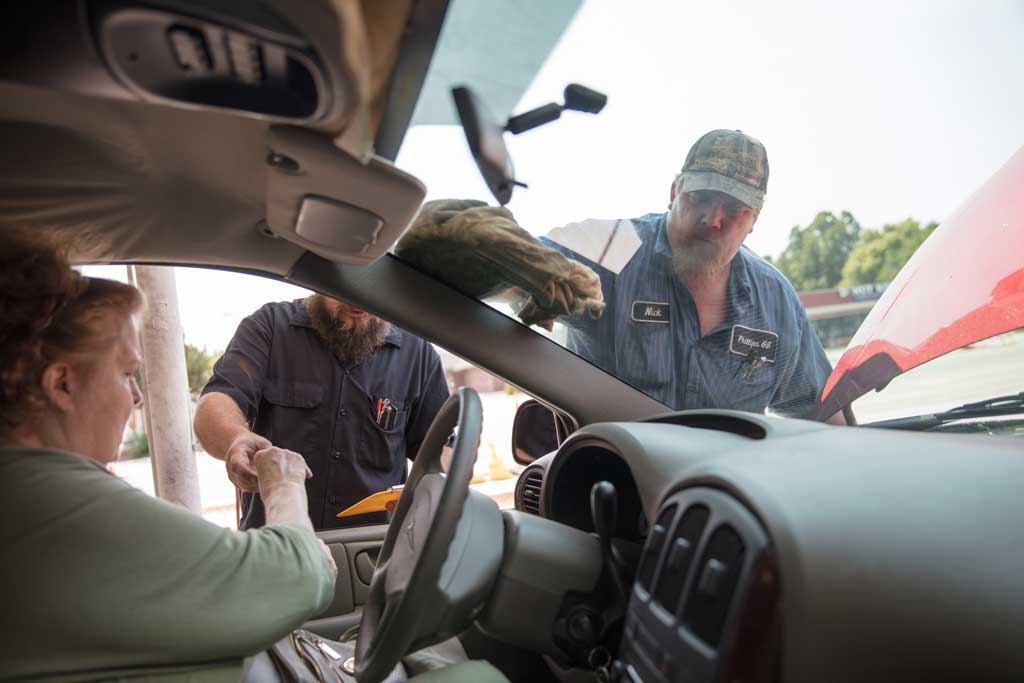
Tom Goodson heads to the fillin’ station every weekday morning just like he has done for the past 43 years … unless a country music star asks him to make a house call.
Goodson acts like it’s no big deal … just one of about 215,000 vehicles he’s repaired or maintained while working at Reeder’s, a Tulsa institution and one of just a few full-service gas stations remaining in Oklahoma.
“Yeah, I’ve gone to Roy Clark’s home and worked on his car,” he says. “He’s one of my regulars.”
Those regulars include grandchildren of folks who came to the station at East 21st Street and South Lewis Avenue when a 14-year-old Goodson was pumping gas.
“I used to ride my bike here everyday until I could drive,” says Goodson, a certified mechanic since 1979. “It’s amazing to see how life changes for everyone. I can’t go anywhere in town without running into a customer.”
Personal relationships drive a full-service station, whether it’s Reeder’s (in the same spot since 1964) or Andrews Phillips 66 in Norman. Up to 95 percent of their customers are repeat business.

“It’s peace of mind,” says Nick Williamson, who manages the service station at West Lindsey Street and South Berry Road, six blocks from the University of Oklahoma. “We give them the old-school experience. We fill their tanks, air up their tires and check their fluid levels under the hood. I’m on a first-name basis with every one of my clients.”
Both Goodson and Williamson emphasize that trust keeps people coming back. If a car is fine, neither will try to sell something extra, like a hose, a fan belt or an oil change.
“We’re not going to tell them anything that doesn’t need to be done immediately,” Williamson says.
Goodson agrees: “If you’re not honest, that’ll run people off.”
Parents frequenting both stations insist that their college-age children get their vehicles checked out before going on road trips.
“We have kids who live out of state and go to OU [University of Oklahoma] come by before they head home for the holidays, because their parents don’t want them breaking down on the road,” Williamson says. “A lot of college kids don’t know how to check their tires or fluids, so we do it for them.”
Goodson, who missed some work recently because of knee-replacement surgery, knows that he doesn’t want to give it up.
“I’m not old enough to retire; I’m just 58,” he says. “I had enough sitting around after the knee surgery and I don’t like it. I gotta move around.”
And he speaks humbly about his decades at Reeder’s and his loyal clients.
“While I was off, I had customers come by my house to check on me,” he says. “What else can you say about that?”
Once the Norm
Until the 1973 oil embargo (by the Organization of Arab Petroleum Exporting Countries) caused a rapid jump in gasoline prices, full-service gas stations were the norm in the United States. To cut labor costs and keep the price per gallon in check, oil companies quickly increased the number of self-service stations. Convenience stores selling gas also evolved and they became the new normal … except in Oregon and New Jersey, where, by law, “gas jockeys” still run the pumps.

























